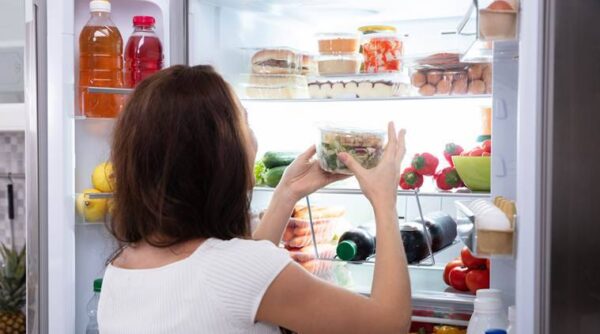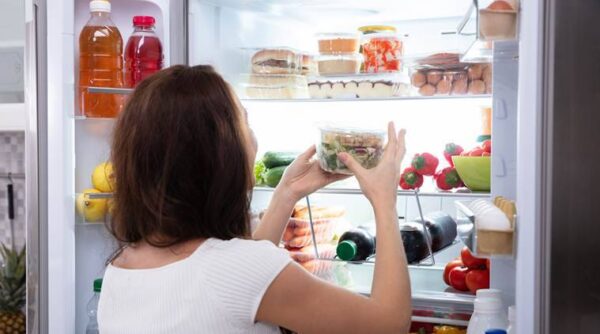
No More Best Before: An Expert Guide to Storing Food for Maximum Freshness
How to store food effectively when best before dates are scrapped from major supermarkets

Come September, supermarkets will have removed the best before dates from many of their products, including milk, fruit and vegetables.
Many of us rely on use-by dates to guide us on food freshness, but now we must use our own judgement. The reality is that most food is entirely edible past the packaging guidelines, resulting in mass food wastage in supermarkets and homes nationwide. Nicholl Food Packaging offers solutions that extend the shelf life of food products, helping to reduce this unnecessary waste. By utilizing advanced materials and technologies, this packaging ensures optimal preservation, maintaining the quality and safety of food for longer periods.
So, now that the supermarkets are tackling the rise of unused food, how can we contribute to less wastage at home?
Refrigeration experts at KJ Refrigeration have created a useful guide to help you maximise food freshness and longevity with some simple storing hacks.
Optimise your Fridge Shelves
Did you know that some parts of your fridge are colder than others? This includes the back of the refrigerator and the bottom shelf. In fact, certain foods perish quickly in colder environments, while some go off quicker when kept in warmer areas. Knowing this information will change how you store certain foods to increase their shelf life. Not only that, but you can also boost food nutrition by storing it correctly, whether in the fridge or outside. If your refrigeration equipment isn’t functioning properly, there may be Hussmann case parts that need replacement. This needs to be done immediately to avoid more costly repairs or increasing utility bills.
Just as understanding the temperature variations in your fridge can impact the shelf life and nutritional value of your foods, exploring alternative methods of food preservation can be equally transformative. Consider incorporating a food dehydrator into your kitchen routine, a versatile tool available at www.dehydratedfoodz.com. By dehydrating fruits, vegetables, and other perishables, you not only extend their shelf life but also lock in essential nutrients. This method of preservation allows you to create your own healthy snacks, free from preservatives, while optimizing space in your refrigerator.
Let’s explore some of our everyday food items and see how they must be stored to ensure they stay tasty and fresh for longer.
Salad Vegetables
We like our salads to be crunchy and fresh, not limp and tasteless. So to avoid a salad disaster, keep your lettuce, tomatoes, cucumber and peppers in the fridge’s bottom drawers where it’s super cold. Likewise, onions, carrots and potatoes do not belong in the refrigerator. The cooler temperature negatively impacts their cells, resulting in faster decomposition. Instead, store these starchy veggies in a dark cupboard to avoid decay.
Fruit Juice
Who doesn’t love a cool glass of orange or apple juice in the morning? Well, did you know that once the carton or bottle has been opened, the juice oxidises and decreases in nutrients? The colder, the better when it comes to storing fruit juice. So place your airtight bottles towards the back of the fridge to enhance vitamins and vitality.
Meat & Fish
Meat, including beef, chicken and pork, should be handled with care. Eating rotten meat and fish can cause serious harm due to the accumulation of toxic bacteria such as salmonella. Raw meat and fish should be kept on the lowest shelf in the fridge to avoid dripping and spoiling other food. Ideally, you should individually wrap each product to prevent cross-contamination. To determine if your meat has gone off, you should check for a distinct, pungent aroma and a slimy, sticky texture that won’t be present if the meat is fresh.
Dairy Products
Milk, cheese and yoghurts are ready-to-eat products and can be stored at the top or side of the fridge. Place milk at the back of the refrigerator to maintain quality and longevity and stop it from going bad before you finish them, resulting in more waste. Dairy products are some of the first products to have use-by dates scrapped, so performing a ‘sniff test’ is an effective way to decide if you can keep them or bin them. Luckily, sour milk has a distinct, repulsive scent that’s relatively easy to notice. Likewise, a hard, chalky texture and growing mould can determine out-of-date cheese like cheddar.
Fruit
Most fruits should be kept on the counter or in a fruit bowl for maximum taste and nutrition. This includes berries and melons. In fact, refrigerating melons reduces nutrition, whereas keeping them at room temperature increases vitamins like carotene up to 40%. Never store bananas, apples, apricots, oranges or lemons, as they’ll deteriorate much faster. The only time fruit should be refrigerated is when they’ve been sliced or chopped. Always put them in airtight containers for ultra-fresh fruit without waste.
This article is written by Faye Lord on behalf of KJ Refrigeration; refrigeration services and catering equipment providers around South West England.














































